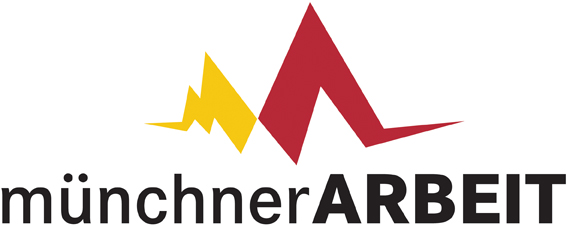How will you get a visa for vocational training in Munich?
Be it school-based or in-company: A visa for vocational training in Munich, Germany provides a highly respected way to enter the city – and to qualify for the free Make it in Munich offers. But what are the requirements, exactly?
Find out more about vocational training visas here, on this page.
How does vocational training work?
Vocational training in Munich often leads to employment. It gives you the skills and knowledge German employers want.
There are two main options for vocational training in Germany:
School-based training:
This combines theoretical classroom learning with practical experience at a vocational school.
In-company training:
This allows you to learn directly on the job at a company, while also attending complementary courses.
Depending on your nationality and visa status, you might require a residence title under Section 16a of the German Residence Act (“Aufenthaltsgesetz – AufenthG“) to pursue vocational training in Germany (page in German).

Do you want to lern more about vocational trainings in Germany?
Visit the “Vocational Training” section on our website for more information.
Vocational training visa - what are the requirements?

- Training placement:
Secure a confirmed training spot at a company or vocational school in Germany.
- Language skills:
Possess sufficient German language proficiency. Typically, this requires a minimum B1 level on the Common European Framework (CEFR). This applies if the training provider has not assessed your skills or you have not taken a preparatory German course.
- Financial resources:
Prove you can cover living expenses throughout the program.
Ways to meet the cost requirement:
- For school-based training:
Open a blocked bank account or provide a declaration of commitment (“Verpflichtungserklärung“) demonstrating sufficient funds.
- For in-company training:
The training allowance you receive can serve as proof. If it is insufficient, supplement it with a blocked bank account or declaration of commitment.
Our Tip
If you have completed vocational training as an assistant or helper in a health or care profession, you may qualify for a residence permit of up to 12 months to search for employment. This permit can be extended once for an additional six months.
It is important to mention that dual vocational training provides apprentices with a salary, which is significant because, unlike in Germany, vocational schools and TVET in many other countries charge school fees:
Further information regarding the visa for vocational training can be found on the Make it in Germany website.
Vocational training visa tip: seeking a vocational training place
Are you interested in pursuing qualified vocational training in Germany – but have not yet secured a spot? You can travel to Germany to look for job opportunities and find a suitable training position – with a visa for seeking vocational training according to Section 17 (1) of the Residence Act (AufenthG).
These are the requirements:
1
School leaving certificate:
You must have a school leaving certificate that qualifies you for higher education or a recognized qualification from a German school abroad.
2
Letter by the vocational school:
To apply for vocational training in a regulated profession, such as health care, applicants must have their foreign school diploma recognized by the Bavarian school authority (Bayerisches Landesamt für Schule – page in German). To begin the process, the applicant must obtain a letter from the school to which he or she is applying – stating that the foreign credential must be recognized to be accepted.
3
Proof of language skills:
You need to demonstrate B1 level German language skills, at the minimum – according to the “Common European Framework of Reference for Languages“ (CEFR).
4
Age limit:
Applicants must be under 35 years old.
5
Ability to cover living expenses:
You must provide proof that you can cover your cost of living for the entire duration of your stay. This can be done by a blocked bank account with at least €1,091 per month (as of 2025) – or by submitting a formal letter of commitment.

More about our offers
We offer free online consultations and seminars, German language and IT courses. All to help you prepare for your career and integrate into Munich – even before you arrive!







